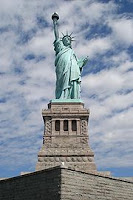
The series on the BBC’s philosophical questions concludes with what is probably the most important one of the four:
Did you really choose to read this article?
The passage goes on to describe an imaginary entity, “Fred,” who has an infinite amount of intelligence and memory. Fred uses these skills to figure out the state of every molecule and particle in the universe, and uses that to predict the future. Thus, Fred knows the location of every particle in any future time, meaning the future (and past) is predetermined.
The passage is basically laying out the fundamental principles of determinism, and is showing how it invalidates our idea of making choices if it is true. This is a huge topic—there is no way that I can completely cover this in one post. However, I would like to throw my two cents in and write down some of my thoughts on the topic.
First, I’d like to talk about the topic in general. Determinism has been argued about for centuries, and almost every philosopher I can think of has an opinion on the topic.
One of the most prominent “common-sense” arguments against determinism has to do with the fact that human beings supposedly have free will. The proof for this, according to the argument, is that consciousness, emotions, and self-awareness indicate the presence of free will. However, I would like to refute this claim with a common-sense argument of my own:
Consider a computer, or a computer program. A computer program is obviously deterministic in nature; it simply performs the tasks assigned to it. However, a computer program can be made very complicated by allowing it to make “decisions” and act differently depending on what data it is given. A simple organism, such as a single-celled amoeba, functions the same way; it follows a set of instructions programmed into its DNA—though these instructions give it some leeway, it has no brain of any kind, as it is simply following orders. (The nucleus of a cell is not its “brain,” despite what we are taught in biology; that is simply an analogy to help us remember its function, keeping the cell’s DNA safe.) Thus, a single-celled organism is just as deterministic as a computer. Next, consider a multi-cellular organism, such as a slime mold or plant. Neither of these organisms have a brain, like the single-celled organism I just mentioned. Though, they are more complex than the single-celled organism, they are essentially the same: they follow the instructions in their DNA. Though a plant or a slime mold has more “choices” to make than an amoeba, their nature is still basically deterministic. Next, let’s move on to a simple animal, such as a mouse or worm. Both of these possess a brain, which changes things somewhat. However, these organisms can still be reduced into deterministic terms: the brain is still a product of the animal’s DNA, and all of the “decisions” it makes must be explained in terms of its chemical and biological structure. In other words—“Fred” would be able to figure out the locations of all the molecules in the brain, and he would be able to predict what “decisions” it makes. Thus, the brain in and of itself is not anything special; organisms with brains can still be explained in terms of determinism. Next, I would like to discuss a self-aware animal, such as a chimpanzee. As we have just seen, the fact that chimps have brains does not mean that they have free will. However, many would argue that since chimps experience emotions and are self-aware, the situation changes. However, I believe that this is false. Emotions and self-awareness can be explained medically as chemical reactions in the brain—they do not indicate free will in any way. Finally, we must take the last step and ask the key question in this proof: how is a human being different from all of the other organisms I just discussed? Humans possess no aspects or parts I did not just explain away; the only difference between a human being and another animal is complexity. Thus, a human being is in essence the same as a computer program: deterministic.
(In the grand scheme of this argument, this simple proof means little. But, if the universe does lack inherent spirituality, it may be true.)
I would also like to add a quote from my favorite novel, The Moon is a Harsh Mistress, which I have spoken at length about before. In the novel, one of the main characters is a computer, who is self-aware. When another character is asked how this computer could be alive because it lacks a soul, the snappy response is:
“‘Soul?’ Does a dog have a soul? How about a cockroach?”
The point is quite clear: many philosophers assume that human beings have souls (but not other animals), and use this as an argument against determinism. However, they are guilty of “taxonomic discrimination,” which casts doubt on the concept of a soul in general.

However, there is strong a scientific argument against determinism: quantum mechanics. This relatively new idea suggests that electrons and other subatomic particles are very different from the matter they make up, since they possess several odd properties that have to do with the fact that they are neither waves nor particles. Also, the Uncertainly Principle states that it is not possible to know all of the information about certain subatomic particles at the same time. This might make in impossible for “Fred” to gather all of the information he needs to predict the location of every molecule in the future.
Because of all this, parts of the universe may truly be random in nature, and these small quantum random patterns can add up to change the movement of molecules, thus disproving determinism. Though quantum mechanics has not been fully worked out, it is generally scientifically accepted, and it is a striking argument against determinism (it does not fully disprove it, though, at least in my skeptical mind.)
The BBC article comments on this, though the language the writer uses is a bit unclear. Here is the passage in question:
“…modern physics tells us that there is a certain amount of fundamental randomness in the universe, and that this would have upset Fred's predictions. But is this reassuring? Notice that, in ordinary life, it is precisely when people act unpredictably that we sometimes question whether they have acted freely and responsibly. So free will begins to look incompatible both with causal determination and with randomness.”
I’m not really sure if I can consider this a legitimate response to the quantum mechanics argument—it seems like the writer is confusing a whole bunch of things in this passage, mixing responsibility and free will and using an unconvincing common-sense example.
That’s all I have time for today. Don’t worry, though—this will certainly not be the last time I discuss determinism here; it’s far too important a topic for me to just talk about it once and put a moratorium on discussing it. For now, at least, the issue remains unsettled.



 Thanksgiving (today) is considered one of the most innocent of American holidays; after all, what could be wrong with the uplifting story of oppressed pilgrims coming to America in search of religious freedom? And what could possibly be more inspirational than a bunch of Indians feeling sympathetic towards these pilgrims and agreeing to help them harvest their crops?
Thanksgiving (today) is considered one of the most innocent of American holidays; after all, what could be wrong with the uplifting story of oppressed pilgrims coming to America in search of religious freedom? And what could possibly be more inspirational than a bunch of Indians feeling sympathetic towards these pilgrims and agreeing to help them harvest their crops? The series on the BBC’s philosophical questions concludes with what is probably the most important one of the four:
The series on the BBC’s philosophical questions concludes with what is probably the most important one of the four:


 I love the BBC. My morning ritual for the past two years has been to skim the BBC World News website for a few minutes, and I often glance at it during lunch. I find them to be far more objective when dealing with America politics, and they provide a delightful selection of very interesting international news. I am not alone in my exultation of the BBC—I have heard that they have the most cachet and prestige worldwide. America news channels, in my opinion, do not have enough world news, and they are far too sensationalist for my tastes. I’ll save my scruples with US news for another lecture, though—this morning I found something I would like to discuss.
I love the BBC. My morning ritual for the past two years has been to skim the BBC World News website for a few minutes, and I often glance at it during lunch. I find them to be far more objective when dealing with America politics, and they provide a delightful selection of very interesting international news. I am not alone in my exultation of the BBC—I have heard that they have the most cachet and prestige worldwide. America news channels, in my opinion, do not have enough world news, and they are far too sensationalist for my tastes. I’ll save my scruples with US news for another lecture, though—this morning I found something I would like to discuss.

 As anyone in America knows, as soon as Thanksgiving rolls around a Christmas tree will appear in front of every town hall. I am not the first to bring up this controversial issue—atheists, Muslims, Jews, and many other have hectored mayors and town officials about this public display of religion. For the most part these people have simply been viewed as liberal malcontents who need something to complain about. Unfortunately, this is true of some of them, but others are civilly demanding equal representation, and rightfully so.
As anyone in America knows, as soon as Thanksgiving rolls around a Christmas tree will appear in front of every town hall. I am not the first to bring up this controversial issue—atheists, Muslims, Jews, and many other have hectored mayors and town officials about this public display of religion. For the most part these people have simply been viewed as liberal malcontents who need something to complain about. Unfortunately, this is true of some of them, but others are civilly demanding equal representation, and rightfully so.





 As I have mentioned before, my favorite book is Robert A. Heinlein’s science fiction novel The Moon is a Harsh Mistress
As I have mentioned before, my favorite book is Robert A. Heinlein’s science fiction novel The Moon is a Harsh Mistress







